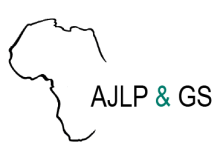Resource information
ontext and background Agriculture, and consequently land is considered a potential to increase economic growth and development than any other sector. With a lot of studies in Asian economies showing increased efficiency and equity associated with land rental markets, this study sought to establish if the same was true for informal land market in one province of Zimbabwe.Goal and Objectives:The study aimed to evaluate the efficiency and equity impacts of informal land rental market participation in one province of Zimbabwe.Methodology:A survey consisting of 339 households identified through multi-stage sampling was carried out. Efficiency was measured using the Cobb-Douglas function and for equity, the Gini co-efficient was used.Results:Results showed that economic efficiency was just above average for all farmer categories, implying land markets alone may not be a panacea to efficiency improvements. There was a marginal improvement in efficiency for land rental market participants when compared with those in autarky. Access to credit, farming experience, crop type, area, and labor were the major drivers of inefficiency across all farmer categories. Equity improved marginally across districts, gender, and A2 farmers due to participation in land rental markets, though land concentration was evident among A1 farmers. The conclusion was that land rental markets improved equity and efficiency though the market needs to be supported with measures that improve farmer productivity like credit and training.


